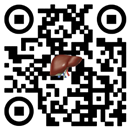<英文>甲肝知识动漫
What is hepatitis A?
Hepatitis A is a liver disease caused by the Hepatitis A Virus. It is common in many developing countries. Hong Kong is a region with intermediate prevalence of hepatitis A. This virus is spread through:
- Fecal-oral route -
- eating contaminated food without proper cooking (especially shellfish like oysters, clams, cockles and mussels)
- drinking contaminated water
- Close personal contact with infected person
Children who are infected with hepatitis A often have milder symptoms than infected adults do. Hepatitis A presenting symptoms can include:
- tiredness
- muscle pain
- headache
- nausea, vomiting, diarrhea, upper abdominal pain
- yellowing of eye and skin (jaundice) and tea-coloured urine
Hepatitis A would rarely cause liver failure or death. Persons recovered from the infection develop lifelong immunity against the infection.
Risk for Travellers
Most young people in Hong Kong, below the age of 30, have never been exposed to hepatitis A, and therefore are susceptible to the infection. In endemic areas, 30 to 100 cases of hepatitis A are reported per 100,000 persons each year. In general, the less hygienic the area is, the higher the chance of infection.
How can travellers prevent themselves from getting hepatitis A ?
Travellers can pay attention to their personal and food hygiene:
- Washing hands thoroughly with soap before eating food or after going to the toilet.
- Avoid drinking beverages or iced drinks of unknown purity.
- Ensure all food is thoroughly cooked, particularly seafood and shellfish.
- Avoid eating uncooked vegetables and sliced fruit.
- These simple measures can effectively prevent travellers from getting hepatitis A infection or other gastrointestinal diseases including food poisoning, dysentery and cholera.
- In addition, travellers can consider hepatitis A vaccine or immune globulin injection. If you frequently travel to endemic areas, hepatitis A vaccination is preferable to immune globulin injection.
Vaccine and Immune Globulin
Hepatitis A vaccine does not substitute personal and food hygiene. As adults who are over 30 years old may already developed immunity against hepatitis A, hepatitis A serostatus should be checked before vaccination so as to avoid unnecessary injections and costs. A complete course of vaccination requires 2 injections, given 6 months to 18 months apart. The body takes 4 weeks to develop antibody against hepatitis A after the first vaccine injection. Therefore, travellers should start the first shot of vaccine at least one month before their journey to provide the best protection.
Travellers may also consider getting a shot of immune globulin which gives immediate but temporary protection. It is effective if the injection is given before hepatitis A exposure or within fourteen days after the exposure. Injection of immune globulin confers temporary protection to as long as 3 months. A dose of immune globulin may be given alone or in addition to hepatitis A vaccine administered at a different site.
Hepatitis A vaccine is not licensed for children younger than one year of age. Children less than one year old can consider immune globulin injection.
What are the adverse effects of Vaccine?
Like any medicine, hepatitis A vaccine could possibly cause adverse reactions. These reactions are usually mild and often last for only one to two days. The most commonly seen undesirable effect is injection site soreness. Other reactions include headache, loss of appetite and tiredness. Severe allergic reaction that occurs within a few minutes to a few hours of the shot is very rare.
Who should not get hepatitis A vaccine?
- Anyone who has ever had a severe life-threatening allergic reaction to the previous dose of hepatitis A vaccine or allergy to any vaccine component should not get another dose.
- Anyone who is moderately or severely ill should postpone the shot.
- Tell your doctor if you are pregnant. The safety of hepatitis A vaccine for pregnant women has not been determined. But there is no evidence that it is harmful to either pregnant women or their unborn babies.
Where can I get the shot?
For arrangement of hepatitis A vaccination, please consult your family doctor.
- 相关内容延伸阅读 ⇓
- 01. 甲肝病情转归情况如何8519
- 02. 急性甲肝的防治原理7783
- 03. 来看看甲肝的危害都有什么10042
- 04. 甲肝的病因9780
- 05. 甲肝的危害到底大不大7587
- 06. 甲型肝炎与冠状动脉疾病有关9609
热门阅读
- 01. 肝好不好看眼睛就知道 肝不好眼睛黄
- 02. 酒精是肝脏健康的第一杀手
- 03. 胆汁性肝硬化的饮食保养
- 04. 肝硬化患者为什么会贫血
- 05. 预防脂肪肝的几点生活习惯
- 06. 酒精肝的3大症状 酒精肝治疗需遵循5原则
- 07. 黄疸型肝炎会不会传染?
- 08. 肝腹水患者出现吐血的原因
- 09. 27岁 乙肝演变为肝硬化!
- 10. 乙肝治疗要注意吃喝,适量运动
图片推荐

72岁老人晚期肝癌侵袭3/4肝脏 如何趟过鬼门关?
深圳的杜先生在72岁高龄查出晚期肝癌,大部分肝脏被癌细胞侵袭,远超出手术切除的安全范围,怎么办?! 香港大学深圳医院多学科联手出了一道妙招:先用药物封堵血管、缩小肿瘤,再用国际上最先进的手术方式分阶

肝豆状核变性需终生治疗 需建立长期随访和病人管理制度
2012年8月18日,由南方医院肝病中心主办的“肝豆状核变性学术专题会”在广州花都举行,会议由侯金林教授和彭劼副教授主持,湘雅二医院肝病中心杨旭主任,南方医院感染内科彭劼副教授、陈金军副教授、孙剑副教

辞旧迎新之际,“惠”“钜”肝病患者
2015已近尾声,2016悄然走来。新春佳节到来之际,肝病医院为答谢广大肝病患者朋友,为您和家人奉上别样的“新春盛宴”。 肝病医院,肝胆相照,风雨同舟 31年肝胆相照,31年风雨同舟,肝病医院从耿

乙肝患者冬季能吃火锅吗?
乙肝患者冬季能吃火锅吗?冬天天气寒冷,人们喜欢吃火锅来驱寒补暖。但对于肝脏受到损害的乙肝患者来说,能吃火锅吗?乙肝患者吃火锅对病情会不会有什么影响?对此,我们来看看肝病医院专家是如何解答的。 乙肝患

交警割肝救妻:手术十多小时,他给妻子延续生命
备受关注的济南槐荫交警董向勇割肝救妻有了新进展,9日,在经过十多小时的漫长手术后,夫妻俩被先后推出手术室。手术非常成功,丈夫再经过护理应该会很快恢复,妻子还需要继续进行观察治疗。主治大夫刘军表示。

乙肝携带者能吃油条吗?
在中国最传统的、最历史的早餐搭配就是豆浆油条,据说吃油条还跟秦桧有关系呢,但是最近好多乙肝患者询问:乙肝携带者可以吃油条吗?虽然不能吃油腻的东西,但吃个早餐没什么事吧! 肝病医院的专家专业解答:乙肝

非诚勿扰女嘉宾杀人案是怎么回事?非诚勿扰王佳杀人事件始末
非诚勿扰女嘉宾杀人案是怎么回事?其实说的就是非诚勿扰王佳杀人事件,5月怀孕结婚,7月杀夫,判刑10年。具体怎么回事呢?下面猎奇岛小编为你提供非诚勿扰女嘉宾王佳杀人案相关内容,希望你们喜欢。非诚勿扰王佳

乙肝治疗有哪些注意事项?
乙肝治疗有哪些注意事项?乙肝不同于其他疾病,其治疗周期较长,因此,患者一定要做好定期随访工作,以便于观察治疗的效果。那么,乙肝治疗有哪些注意事项?对此,肝病医院专家做出详细解答。 乙肝治疗有哪些注意


